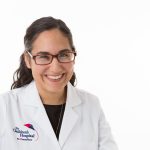
Brandon Bourdages / shutterstock.com
On May 16 and 17, ACR/ARHP leaders serving on the Board of Directors, Affiliate Society Council, Government Affairs Committee, Committee on Rheumatologic Care, RheumPAC Committee and Insurance Subcommittee once again went to Capitol Hill to advocate on behalf of ACR/ARHP members and their patients. The group represented 27 states and the District of Columbia, and conducted meetings in offices of the Senate and House of Representatives, as well hosting dinner with Rep. Michael Burgess, MD, chair of the House Energy and Commerce Subcommittee on Health.
During the Hill meetings, ACR/ARHP leaders asked that Congress support H.R. 2077, the Restoring Patient’s Voice Act, to mitigate the impact of step therapy, or fail-first policies, on patient care by creating a clear and transparent process for patients with employer-sponsored insurance to seek exceptions to mandated step therapy. This legislation would also establish a reasonable and clear time frame for granting these exceptions and require insurers to consider the patient’s medical history and the medical provider’s expertise in partnership with their own before denying a patient a prescribed medically necessary treatment. In short, this is common sense legislation that puts the patient first by addressing the delay and de facto denial of care that too many patients face.
Leaders also asked Congress to address the growing workforce shortage facing medical providers and specifically rheumatologists. Rheumatology will need 3,845 more licensed and practicing rheumatologists in 2025 than the workforce is projected to comprise, according to the ACR’s 2015 Rheumatology Workforce Study. To this end, legislators were asked to cosponsor H.R. 3767/S. 989, the Ensuring Children’s Access to Specialty Care Act, which would make pediatric subspecialties, such as pediatric rheumatology, eligible for the National Health Service Corps (NHSC). The NHSC provides scholarships and loan repayment to healthcare providers in exchange for service in rural and underserved areas. Lawmakers in both branches were also asked to cosponsor H.R. 2141/S. 898, the Conrad State 30 and Physician Access Reauthorization Act, which would streamline visa processing for foreign physicians and provide incentives to physicians to practice in rural and medically underserved communities.
In addition to legislation, the College asked lawmakers to support the medical workforce by ensuring programs like the Public Service Loan Forgiveness (PSLF) remain viable, well-administered options for new rheumatologists to repay loans and reduce total loan payments. Medical student loan debt averages $180,000 per student, according to the Association of American Medical Colleges. Among recent medical graduates, more than 20% of those in medical specialties plan to pursue PSLF.
